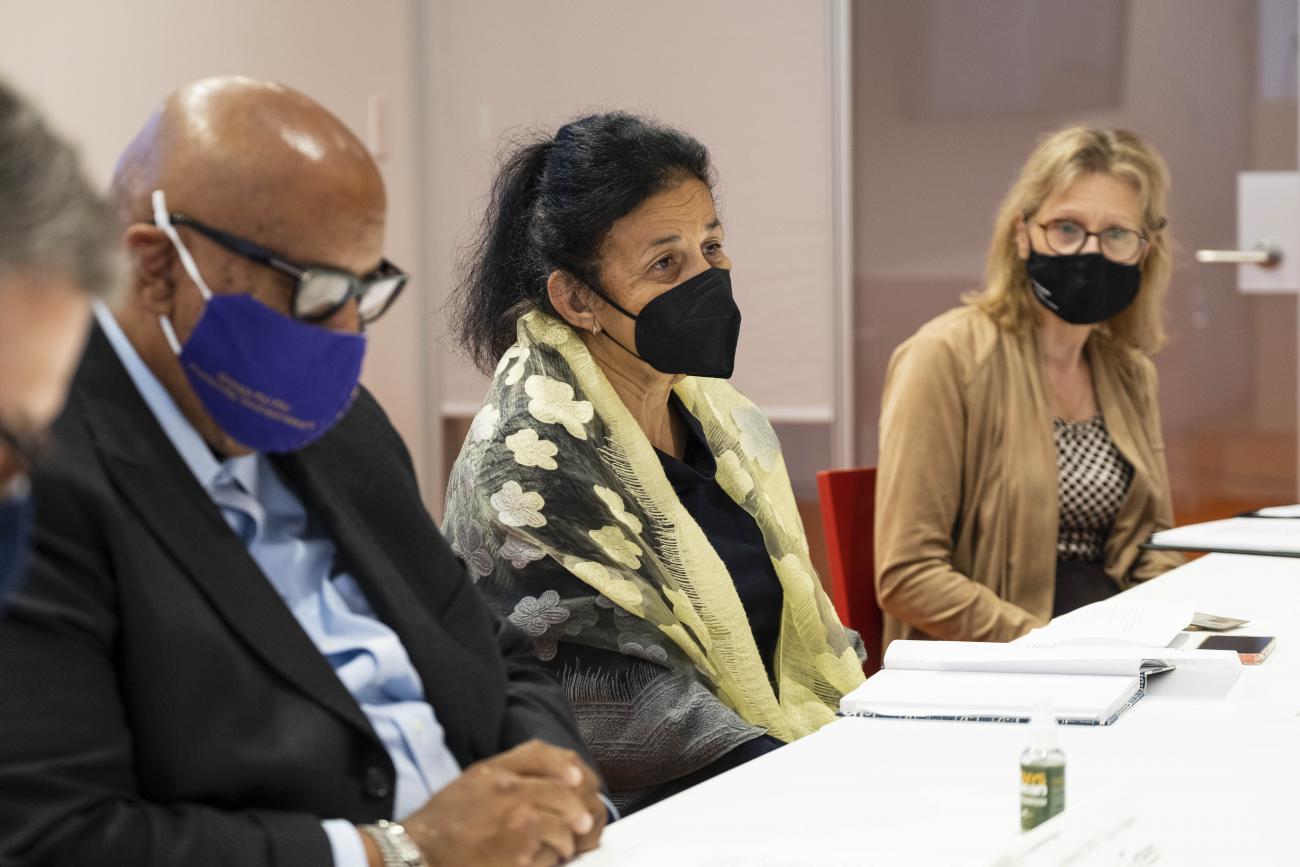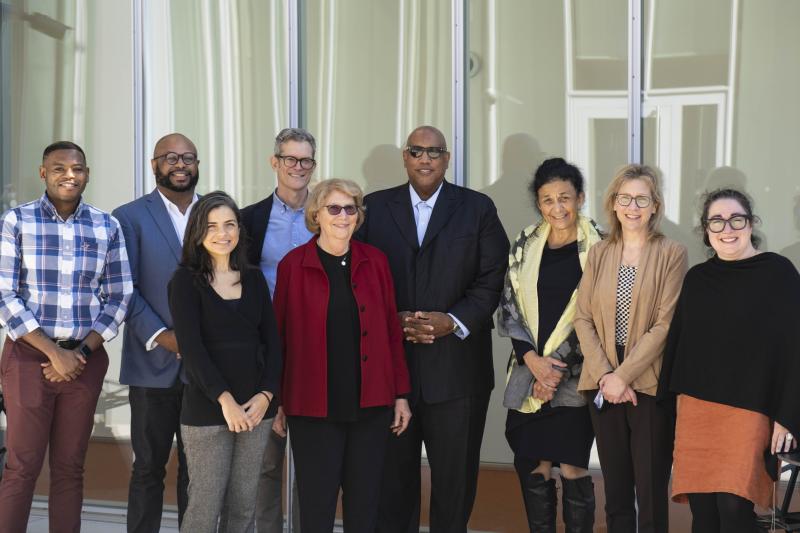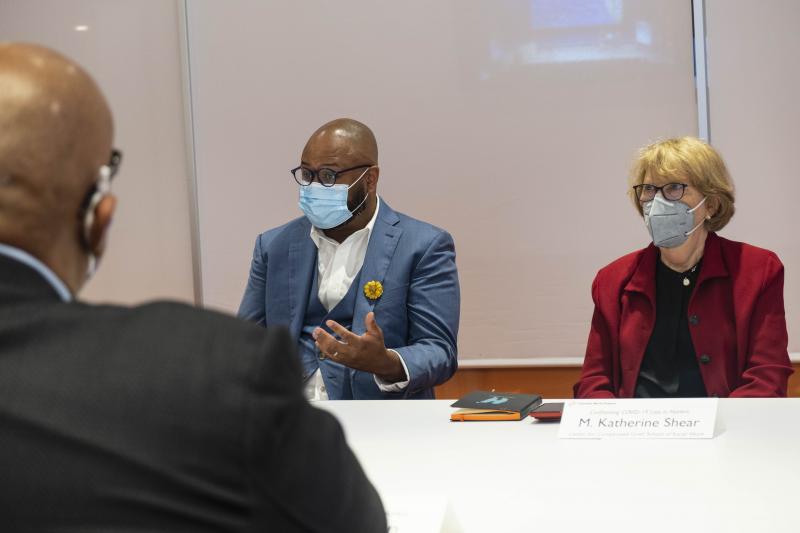
Columbia World Projects (CWP) on Thursday held a kick-off event for Confronting COVID-19 Loss in Harlem. This new project aims to reduce COVID-19 related grief in Harlem’s Black community by partnering Columbia researchers with local faith leaders and other community leaders to address intense and pervasive grief that has emerged as a result of the pandemic.
"I was the chief of infectious diseases for many years at Harlem Hospital. I have a long connection to the community and I think that's why in particular, this project is very close to my heart,” Wafaa El-Sadr, the director of Columbia World Projects, said at the event.
The project partners include leaders from the Harlem community and Columbia scholars, who will embark on adapting digital tools – such as apps and videos – developed by Columbia’s Center for Prolonged Grief to address prolonged grief disorder (PGD), a form of grief that is unusually intense and enduring and that pervades everyday life.
The project will solicit inputs from community leaders through planned discussions of grief in the Black community and online recordings of personal grief experiences. Existing tools to identify and address prolonged grief will be modified as needed for use by the Black community. The modified digital tools will then be disseminated across Harlem and to other communities coping with similar challenges.
“Even after 43 years of engaging in ministry and dealing with an enormous amount of grief, COVID-19 pushed us to the brink,” Dr. Johnnie Green, a lead on the project team, said. Green is the President and CEO of Mobilizing Preachers and Community, New York and the Senior Pastor at Mount Neboh Baptist Church in Harlem. He noted that he was excited to work with professors Desmond Upton Patton and Katherine Shear of the Columbia School of Social Work on a project that brings together the university and the church: “One of the things that [Katherine] Shear and I came up with early on was the connection between Athens and Jerusalem; Jerusalem, representing the church and Athens, intelligentsia,” Dr. Green said. “That connection between Athens and Jerusalem puts us in a great position.”
“It is extremely exciting to me to be able to now bring this intervention to the community and see how it fits,” Katherine Shear, a project lead and the founding director of the Center for Prolonged Grief, said, of the Center’s digital tools.
“I co-develop a platform that will allow users to write about their experiences of prolonged grief online. I will partner with my colleague in computer science to use machine learning and natural language processing tools to identify signs of prolonged grief on social media,” Desmond Upton Patton, a project lead and the director of SAFE Lab, said.
“The pandemic has shone a very bright light on the ongoing issues of racism, inequity and unequal access to resources throughout our society,” Melissa Begg, Dean of Columbia’s School of Social Work, said. “The loss of each and every person will be long felt, and can never be rectified. But we can take action, as this project demonstrates, to address the mourning and reduce the suffering among those affected.”



